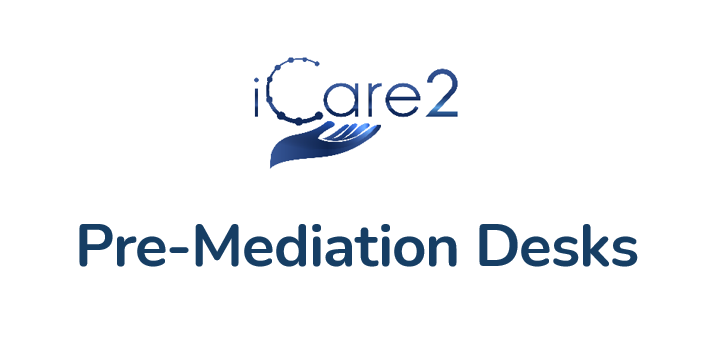With international child abduction becoming an increasing concern, the iCare2 project aims to mitigate its adverse effects by strengthening international family mediation in the best interest of the child. Despite its benefits as a voluntary, child-centered, and often quicker alternative to litigation, many families are unaware of mediation or feel unprepared to engage in it. This is where pre-mediation plays a vital role by providing a structured introduction that informs, supports, and prepares families for effective participation in the mediation process.
Pre-mediation within the iCare2 context refers to the preparatory stage during which parties are informed about the issue and prepared for future mediation. The process also allows for temporary agreements and support for the parties before formal mediation proceedings begin.
Currently, there are no dedicated pre-mediation centers in the iCare2 partner countries, apart from the informal pre-mediation service offered by Droit d’Enfance – ISS France. Following the experience and expertise of Droit d’Enfance, a methodology for the implementation of pre-mediation desks was developed within the iCare2 project. Led by ISS France and supported by the contributions of all project partners, this methodology serves as a flexible framework that can be adapted to each national context.
Based on this approach, official pre-mediation desks will be launched this autumn in Bulgaria, Poland, Italy, and France.
Accessible via phone or email, pre-mediation services will offer families involved in complex conflicts as well as legal professionals and social workers already working on those conflicts information on their rights assess the situation at hand, and, where appropriate, refer them to professional mediators.
Pre-mediation, which is less formal than mediation, typically involves a multidisciplinary team, including mediators, social workers, and legal professionals, and focuses on the following aspects:
- To inform parents about the mediation process, the rights of the parents and the child, and the available options;
- To assess the family situation;
- To refer the family to mediators if their situation is assessed as suitable for mediation.
- To support the parents in reaching a temporary agreement already before the mediation process is initiated;
- To offer advice on how to preserve or rebuild positive family relationships.
By creating a structured entry point into the mediation process, the pre-mediation desks aim to improve access to support, encourage constructive dialogue, and promote the well-being of children involved in cross-border family disputes.
Stay tuned on our social media /LinkedIn, Facebook, X and our Website/ – we’ll be sharing updates on the implementation of pre-mediation desks and our role in the process.
